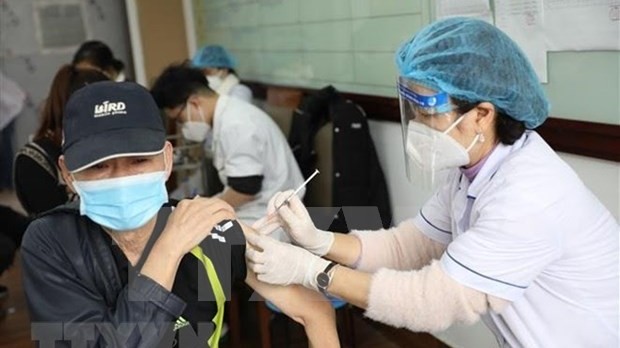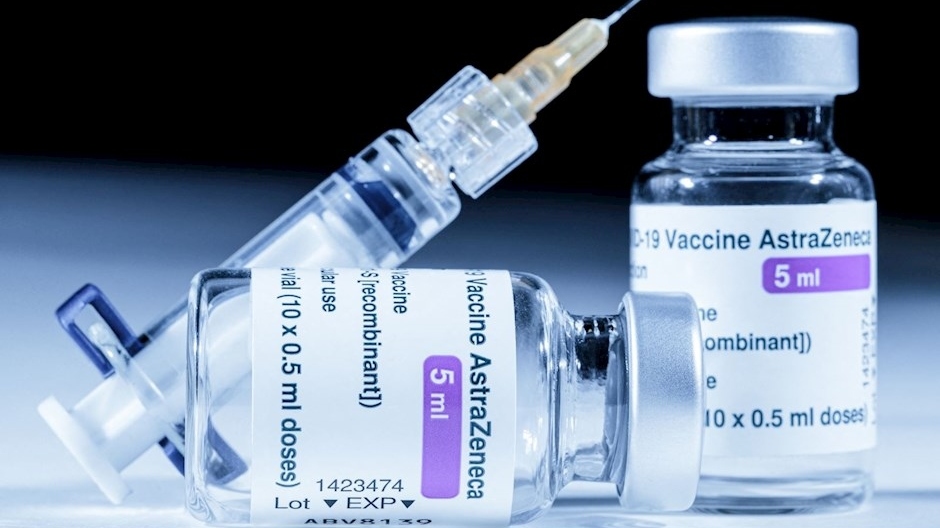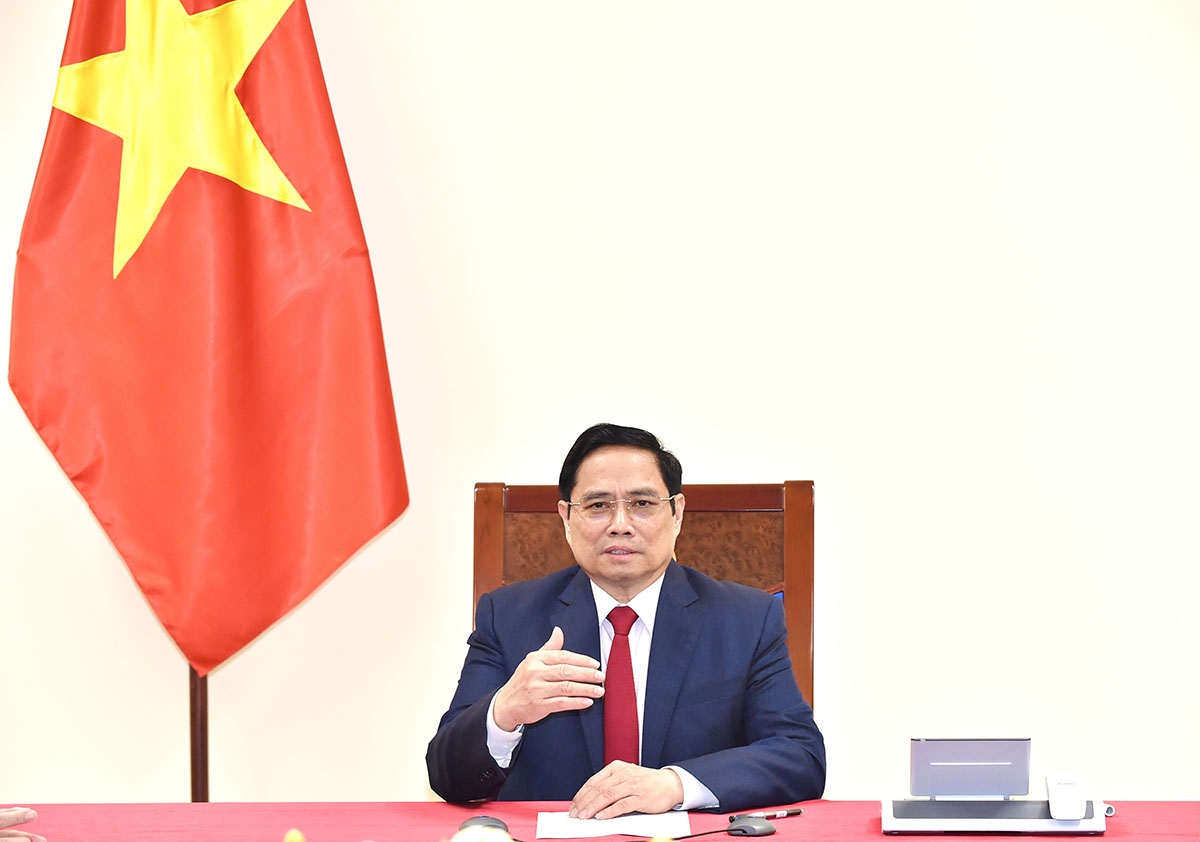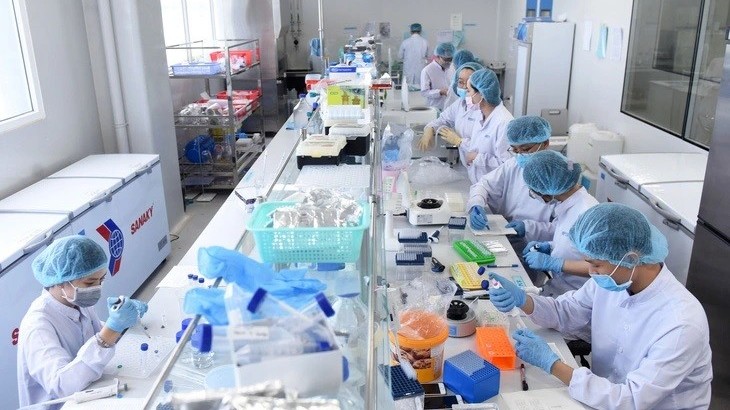
Towards strengthening vaccine access and production capacity in Vietnam
Latest
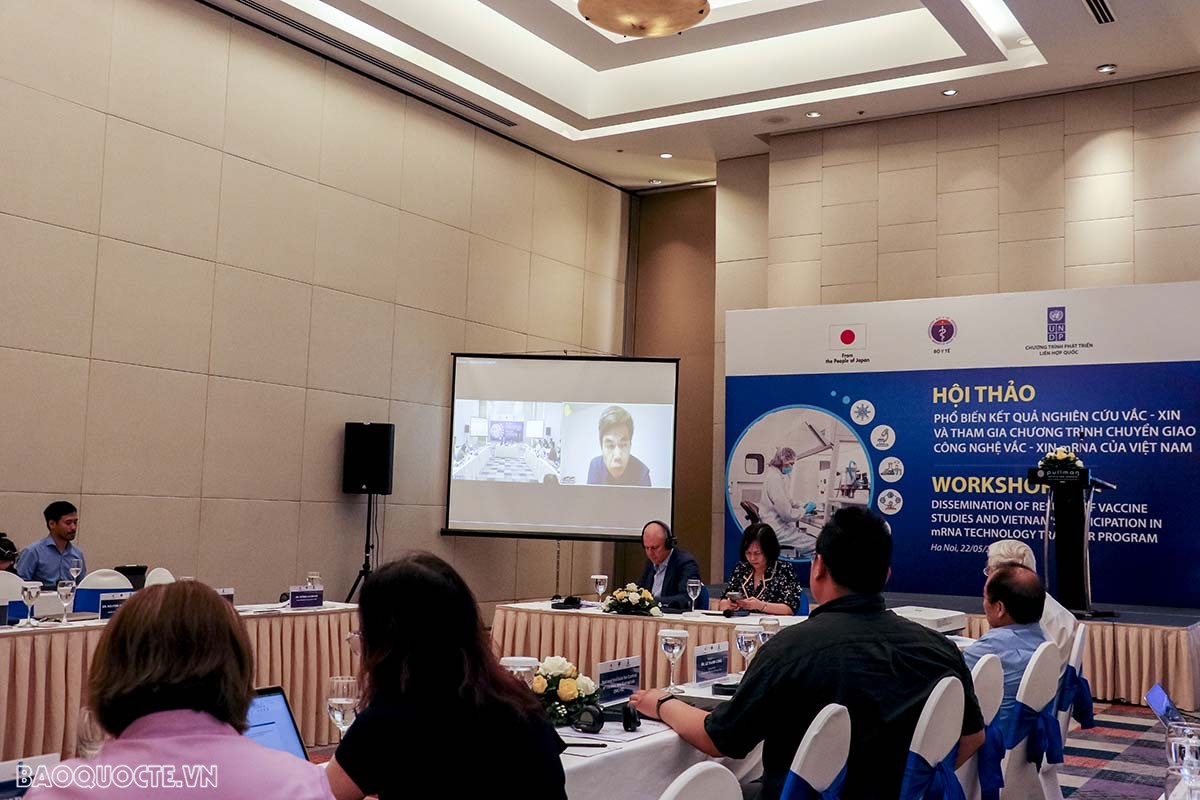 |
| The workshop to disseminate the results of three studies on strengthening vaccine production and certification in Viet Nam. |
The United Nations Development Programme (UNDP) and the Health Strategy and Policy Institute (HSPI) of the Ministry of Health of Viet Nam organized a workshop to disseminate the results of three studies on strengthening vaccine production and certification in Viet Nam and to update on Viet Nam’s participation in WHO’s mRNA technology transfer program through the project "Support to Strengthening Vaccine Access and Health System Capacity for Viet Nam's Response to COVID-19." This project is funded by the Government of Japan through UNDP.
Attending the workshop were representatives of the Ministry of Health Departments Administrations and stakeholders including Health Strategy and Policy Institute of Viet Nam, the Drug Administration, the Department of Preventive Medicine, the Department of Planning and Finance, the National Institute of Hygiene and Epidemiology (NIHE), the Center for Research and Production of Vaccines and Biologicals (POLYVAC), the Institute of Vaccine and Biological Medicine (IVAC), Company for Vaccine and Biological Production No. 1 and others of national institutes, centers and companies working on research and production of vaccines, and the World Health Organization.
The workshop provided a platform to share the key findings of three crucial studies conducted under this project. These studies focus on sharing international experiences on domestic vaccine development and production, mapping Viet Nam's current vaccine production capacity, and reviewing international vaccine licensing policies and procedures, including licensing of international COVID-19 vaccines for use in Viet Nam. It provided a valuable opportunity to present these findings and discuss the next steps in applying the results.
During the workshop, Viet Nam's participation in the mRNA Technology Transfer Programme initiated by the World Health Organization (WHO) was highlighted as a significant step towards strengthening vaccine access and production capacity in the country.
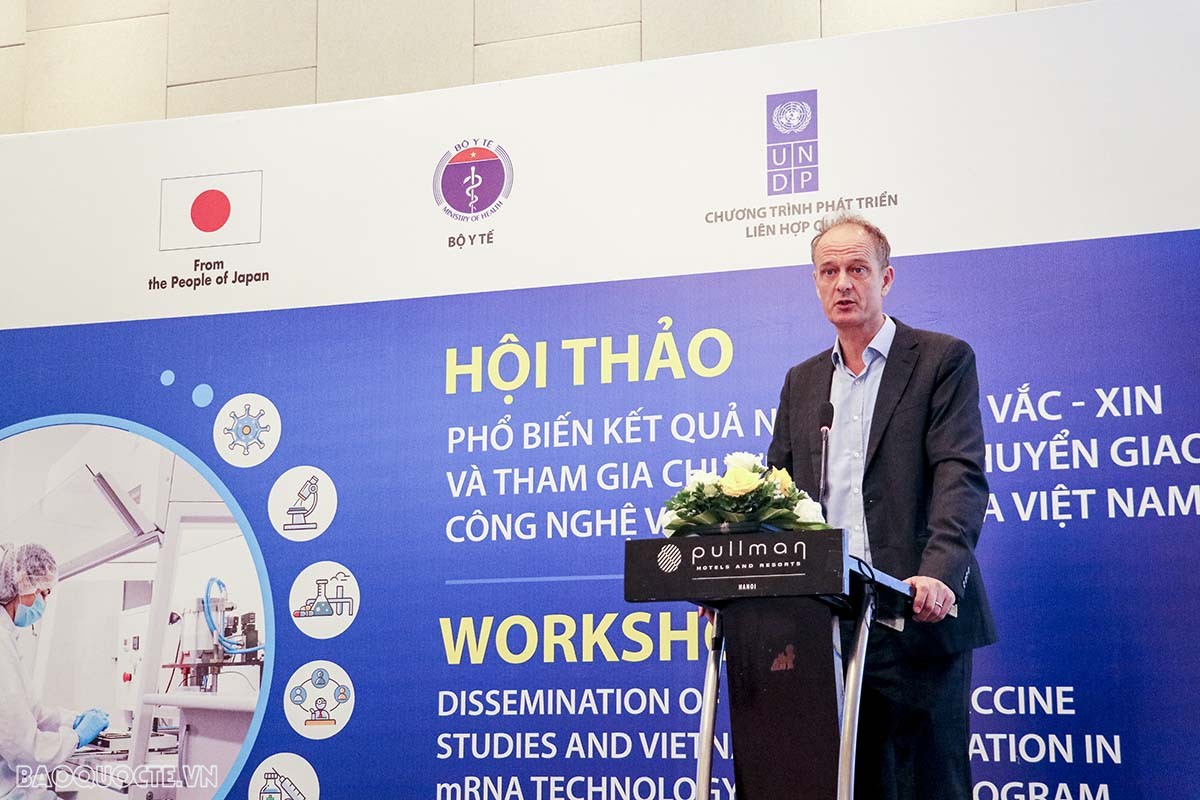 |
| "It is an important opportunity for Viet Nam to access this key new technology for vaccine production", said Mr. Patrick Haverman, UNDP Deputy Resident Representative in Viet Nam. |
"It is an important opportunity for Viet Nam to access this key new technology for vaccine production. But it will also require careful consideration of the steps and timelines, the scale and sources of the required investment of funds, and the development of expertise to ensure this technology transfer's effectiveness and financial sustainability," said Mr. Patrick Haverman, UNDP Deputy Resident Representative in Viet Nam.
According to Mr. Haverman, the results of the studies will inform these considerations. The collaboration among the key departments, institutes, enterprises, senior experts, and partners at the workshop will contribute to developing an effective national strategy to improve vaccine access in Viet Nam and the broader region in the coming time.
Dr. Nguyen Khanh Phuong, HSPI Vice Director, said that Vietnam has the ability to master vaccine production technology as it has previously mastered technologies such as inactivated vaccines, antitoxin vaccines, subunit vaccines.
She underlined the need for Vietnam to focus on developing highly qualified and skilled human resources for vaccine production, while building a GMP (good manufacturing practice) production facility with a scale to meet domestic and export demand, among others.
The COVID-19 pandemic posed significant challenges for Viet Nam and other countries in accessing vaccine supplies. In mid-2021, Viet Nam had one of Southeast Asia's lowest COVID-19 vaccine coverage rates. However, through a combination of COVAX supplies, donations facilitated by a dedicated Government task force, and procurement from international suppliers, Viet Nam rapidly increased its vaccination rates in the latter half of 2021. This achievement not only saved lives but also created conditions for reopening and recovering from the economic impact of the pandemic.
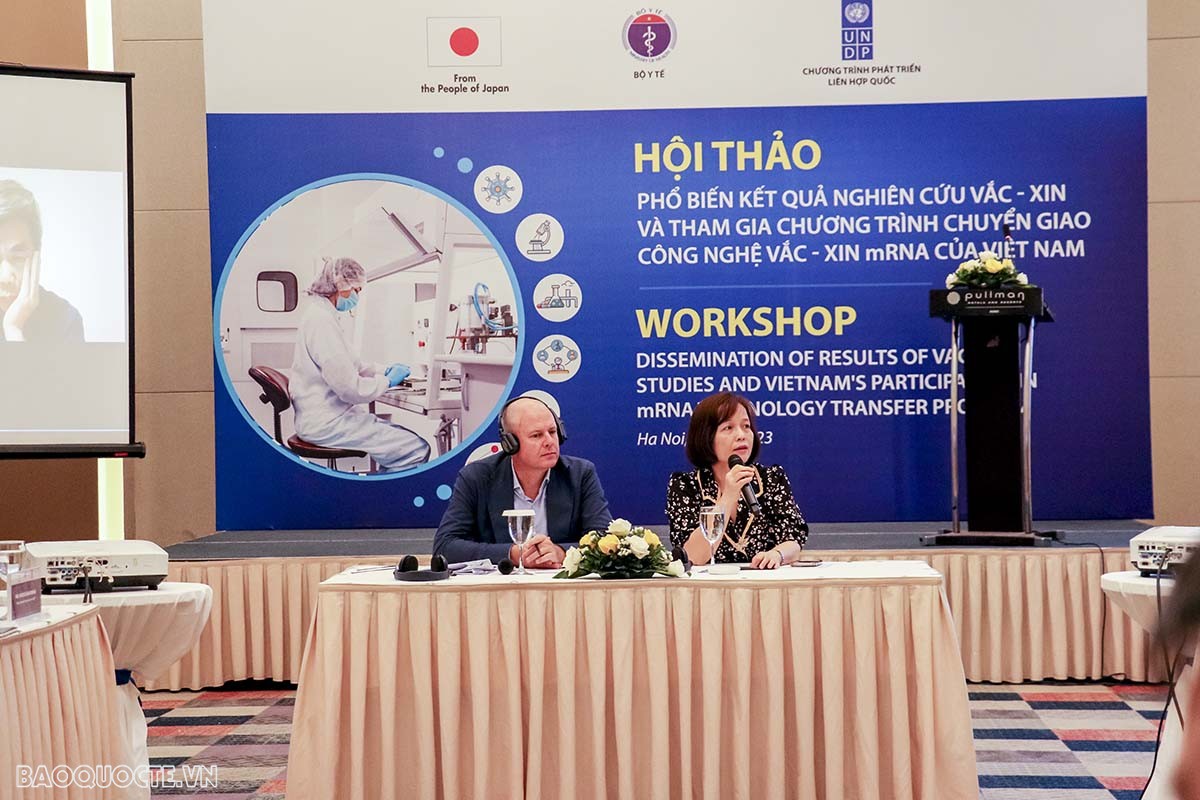 |
| Dr. Nguyen Khanh Phuong, HSPI Vice Director, said that Vietnam has the ability to master vaccine production technology. |
A significant highlight of the workshop was the proposal of a roadmap to establish Viet Nam as a regional vaccine production center. This roadmap outlined the necessary steps and actions to enhance Viet Nam's capabilities in vaccine production, contributing to regional health security.
The findings and recommendations from the studies were discussed, encouraging active participation and engagement among the workshop participants. This discussion played a necessary role in shaping future strategies and actions related to vaccine production and access in Viet Nam.
Additionally, Viet Nam recognizes the need to strengthen its national vaccine production and certification capacity based on the successful application of mRNA vaccine technology during the pandemic. It includes participating in WHO's technology transfer program for mRNA vaccine production via Afrigen in Cape Town, South Africa.
A report was presented on the introductory package of mRNA COVID-19 vaccine manufacturing for lab-scale processes, which was introduced in the first research and development training in South Africa. This report provided valuable insights into the technical aspects of mRNA vaccine production and its potential application in Viet Nam.
The workshop represents a step toward strengthening Viet Nam's vaccine access and production capacity. By leveraging international experiences and collaborating with key stakeholders, Viet Nam aims to become a regional leader in vaccine production and contribute to global efforts in responding to health crises.




